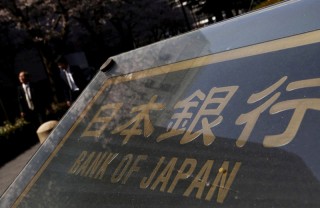Loading
Search
▼ Helicopter Money Talk Takes Flight as BOJ Runs Out of Room
- Category:Other
TOKYO (Reuters) — The Bank of Japan’s review of its monetary stimulus program promised for September has revived expectations it could adopt some form of “helicopter money,” printing money for government spending to spur inflation.
The BOJ disappointed market hopes on Friday that it might increase its heavy buying of government debt or lower already negative interest rates, cementing the view that it is running out of options within its existing policy framework to lift prices and end two decades of deflationary pressure.
With little to show for three years of massive monetary easing, economists say BOJ governor Haruhiko Kuroda’s “comprehensive assessment” of policy could push it into closer cooperation with Prime Minister Shinzo Abe, who announced a fiscal spending package worth more than ¥28 trillion ($275 billion) on Wednesday in a bid to kick start growth.
“The comprehensive review might be the first step toward further collaboration with the government, hinting at helicopter money,” said Daiju Aoki, economist at UBS Securities.
“The government could issue 50-year bonds, and if the BOJ makes a commitment to hold them for a very long time, that would be like helicopter money.”
The helicopter money metaphor for the aggressive printing of new money was first used by American economist Milton Friedman in 1969 and cited by former U.S. Federal Reserve chairman Ben Bernanke in 2002 as a scheme that could fight deflation.
Some economists, however, fear it could trigger hyperinflation and uncontrollable currency devaluation.
Speculation that Japan might take that path reached fever pitch earlier in July when Bernanke met Abe and Kuroda in Tokyo, though policymakers quickly tried to damp down such talk.
Pressure response
In the narrowest sense, a government can arrange a helicopter drop of cash by selling perpetual bonds, which never need to be repaid, directly to the central bank.
Economists do not expect this in Japan, but they do see a high chance of mission creep, with the BOJ perhaps committing to buy municipal bonds or debt issued by state-backed entities, giving its interventions more impact than in the treasury bond market, where it is currently buying 80 trillion yen a year of Japanese government bonds (JGBs) from financial institutions.
“Compared with government debt, these assets have low trading volume and low liquidity, so BOJ purchases stand a high chance of distorting these markets,” said Shinichi Fukuda, a professor of economics at Tokyo University.
- August 2, 2016
- Comment (0)
- Trackback(0)


